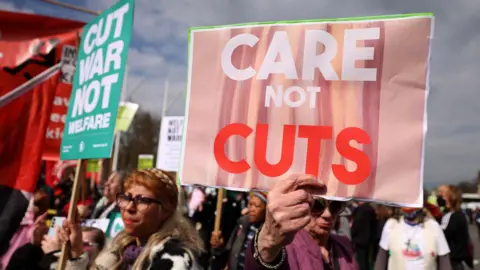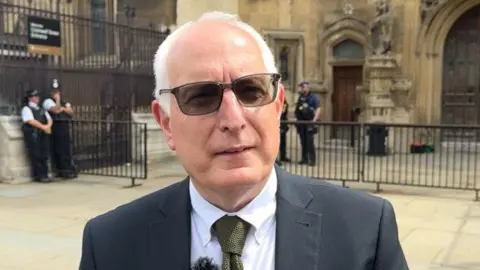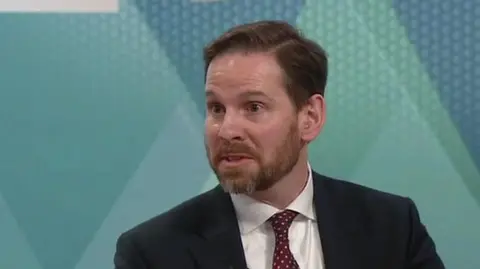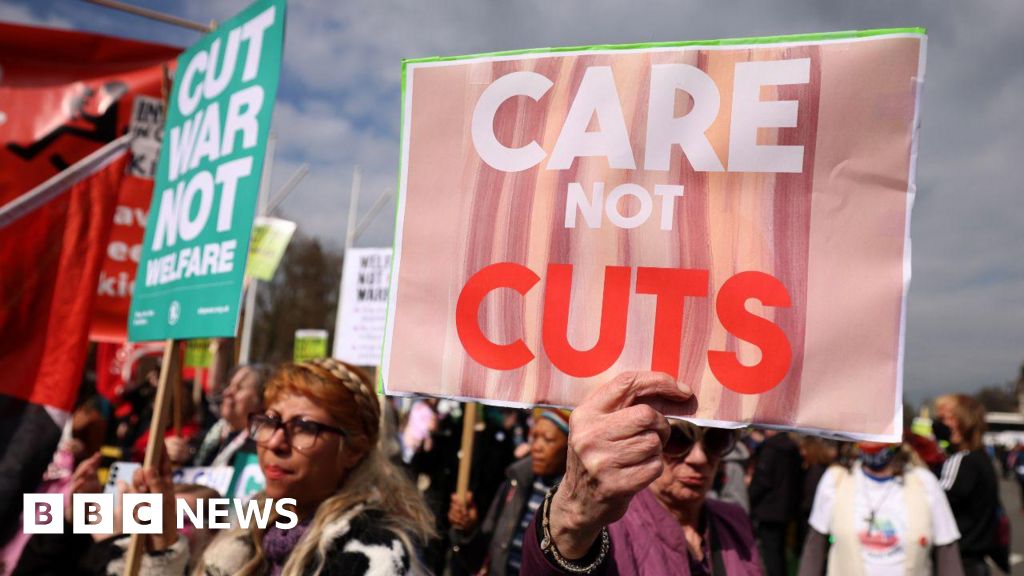Joshua NevettPolitical reporterEPAThis week, Sir Keir Starmer and his ministers redoubled their efforts to win over Labour MPs minded to join what cou
Political reporter
 EPA
EPAThis week, Sir Keir Starmer and his ministers redoubled their efforts to win over Labour MPs minded to join what could be the biggest rebellion yet against his government.
Dozens of Labour MPs have raised concerns about benefits cuts worth £5bn a year by 2030 and their potential impact on disabled people.
The reforms to disability benefits have divided the party and left many pondering: what is Labour for, exactly?
A “Labour cause” is how Sir Keir described the package of welfare reforms, at a meeting of his MPs on Monday.
Next month, those MPs will have to decide whether that’s a cause worth getting behind, when the benefits changes are voted on in Parliament for the first time.
As ministers come under pressure to water down their welfare plans, Labour MPs with different perspectives told the BBC where they stand.
Conflicting values
For critics, the prospect of a Labour government taking away social security payments from some sick and disabled people is at best unpalatable and at worst unconscionable.
It wasn’t that long ago that one of the party’s main focuses was opposing what it saw as the austerity spending cuts of the Conservative government, when the now-exiled Jeremy Corbyn was Labour leader.
While Corbyn’s leadership is long gone, that strain of thought lives on in the party – and it’s in evidence among Labour MPs elected for the first time last year.
Neil Duncan-Jordan, the MP for Poole, is one of those newbies.
He and about 40 other Labour MPs signed a letter warning the welfare changes were “impossible to support” without a “change of direction”.
“No Labour MP comes into Parliament to make poor people poorer,” he said.
What concerns him most are proposals to make it harder for disabled people with less severe conditions to claim personal independence payment (Pip).
The welfare package as a whole could push an extra 250,000 people, including 50,000 children, into relative poverty, according to the government’s impact assessment.
But ministers have stressed the figures do not factor in the government’s plans to spend £1bn on helping the long-term sick and disabled back into work, or its efforts to reduce poverty.
“What I think everyone accepts is that assisting people back to work who can work is a positive thing,” Duncan-Jordan said. “But saying that you go to work or we cut your benefit, is not the way to do it and I don’t think it’s a Labour way either.”
And yet the “Labour way” is open to interpretation.

For Alex Ballinger, who was elected as Labour MP for Halesowen last year, his party is about “increasing opportunities for the most vulnerable people in society”.
“We’re about improving life outcomes and being ambitious for those people who maybe need a bit more encouragement,” he said. “I think all those are things that could chime with Labour values.”
He said the most important aspect of the welfare reforms was the support for disabled people who want to work. It includes giving disabled people the right to try work without the risk of losing their welfare entitlements.
Ministers hope these efforts will boost employment among benefits recipients, at a time when 2.8 million people are economically inactive due to long-term sickness.
If nothing changes, the health and disability benefits bill is forecast to reach £70bn a year by the end of the decade, a level of spending the government says is “unsustainable”.
“The country shouldn’t be in a situation where we’re paying that much at the same time as having millions of young people out of education and training,” Ballinger said. “I think these reforms are a good balance.”

Although their party is split on welfare, some MPs have something in common.
Ballinger and Duncan-Jordan are two of 194 Labour MPs who have majorities smaller than the number of Pip claimants in their constituencies.
The welfare changes will not affect everyone on Pip and the number of recipients in each constituency could change by the next general election.
But disability campaigners have picked up on this and are writing to these MPs urging them to vote against the government’s welfare reforms.
That vote is due in June, when the government will try to pass a new law to make changes to welfare payments.
Holding firm
Given Labour’s large majority, the bill is expected to pass.
Even so, there is widespread unease among Labour MPs, with some signing a letter to the chief whip to suggest they would not support the bill in its current form.
Some disgruntled Labour MPs have said as much in interviews, including Clive Lewis, who railed against the cuts to Pip.
“We do not cut from the poorest and most vulnerable,” he told the BBC. “It’s obscene and a Labour government should be tackling that, and punching up, before it punches down.”
Another Labour MP, Stella Creasy, said it would be “remiss” of the government to ignore the concerns of her colleagues.
A government source said ministers had been engaging with MPs in one-to-one meetings and listening to their feedback in recent weeks.
Those MPs hope the government can be persuaded to change course, as it did this week, with its U-turn on the controversial decision to cut winter fuel payments for millions of pensioners.
But despite sustained backbench pressure, Sir Keir’s government has held firm so far.
That was demonstrated this week in a speech by Work and Pensions Secretary Liz Kendall, who said there was a risk the welfare state “won’t be there for people who really need it in future” without reform.
Her interpretation of the Labour response to this problem was a notable theme.
“There is nothing Labour about accepting the cost of this economic but, above all, social crisis, paid for in people’s life chances and living standards,” she said.
When MPs walk through the voting lobbies next month, their version of Labour’s values on welfare will be revealed.
www.bbc.com

